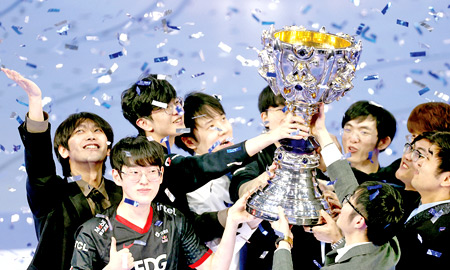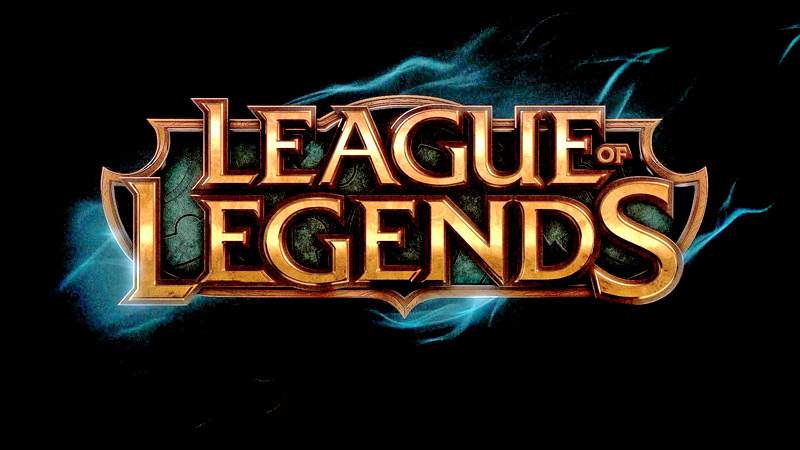With the recent conclusion of the final season of the Arcane animated series, there has been great interest in the other possible stories in the world of Runeterra, and the broader League of Legends media franchise.
 Since its debut in 2009, League of Legends (LoL), developed by Riot Games, has evolved from a competitive online multiplayer game into a sprawling multimedia franchise including music, comics, game spin-offs, and even an online collectible card game. Initially, a team-based multiplayer online battle arena (MOBA) game directly based on another popular title, League of Legends, quickly grew into a global phenomenon, considered to be one of the most popular video games of all time, and shaping the world of competitive gaming.
Since its debut in 2009, League of Legends (LoL), developed by Riot Games, has evolved from a competitive online multiplayer game into a sprawling multimedia franchise including music, comics, game spin-offs, and even an online collectible card game. Initially, a team-based multiplayer online battle arena (MOBA) game directly based on another popular title, League of Legends, quickly grew into a global phenomenon, considered to be one of the most popular video games of all time, and shaping the world of competitive gaming.
Inspired
The original League of Legends game was directly inspired to be a successor to the Defence of the Ancients (DotA), a mod for Warcraft III (2002) that helped launch the genre of MOBAs, which was also inspired by a mod for Starcraft (1998) called Aeon of Strife. Much like Dota and others in the MOBA genre, players in League of Legends choose from a roster of “champions,” each with distinct abilities, and engage in team-based combat. Since releasing in 2009, its combination of fast-paced gameplay, deep real-time strategy, low barrier to entry, and a constantly evolving meta drew millions of players worldwide.
Riot’s commitment to regular updates and champion additions ensured the game stayed fresh, cementing its place as a cornerstone of modern esports. Today, there are over 160 champions in the game, all with completely unique kits and playstyles, and older characters are constantly being reworked in an attempt to keep up with the meta.
The competitive scene played a vital role in the game’s growth. Riot’s League of Legends World Championship (Worlds) became one of the largest esports tournaments ever, drawing millions of live viewers annually and offering a multi-million dollar cash prize.
The competitive ecosystem expanded with regional leagues like the LCS (North America) and LEC (Europe), creating a global network that elevated LoL as a dominant force in esports. For a time, LoL was undisputedly the most-played game in the world and was only recently dethroned by Fortnite’s runaway success.
Expansion
Recognising the depth of its lore and characters, Riot began expanding the League of Legends universe beyond gaming. The champions, each with a backstory connected to the fictional world of Runeterra, offered rich material for storytelling. This led to the development of new media that delved into the lore and brought Runeterra to life.
However, the implementation of the lore in the main game of LoL has been inconsistent in the past, with Riot retconning and rebooting the setting. Lore was never the primary focus and the MOBA genre did not lend itself well to telling stories.
Today, Riot has taken its story a lot more seriously, and its lore is primarily told through an external encyclopaedic website called Universe, which also includes short stories, artwork, comics, animations, and more.
As a part of its focus on expanding League of Legends as a multimedia franchise, Riot has involved itself in many successful projects.
In 2021, Riot launched Arcane, an animated series on Netflix that quickly became a critical and commercial success, winning awards like the Emmy for Outstanding Animated Program. It introduced League of Legends to a broader mainstream audience, many of whom had never played the game.
Riot has also ventured into music, with virtual pop groups like K/DA, True Damage, Pentakill, and Heartsteel, featuring in-game champions as members. The success of League of Legends as a game also paved the way for new game titles in a variety of other genres, such as the Legends of Runeterra (a digital card game), Teamfight Tactics (an auto-battler), and League of Legends: Wild Rift (a mobile-friendly adaptation of the original). Each spin-off retained the essence of the LoL universe while catering to different gaming audiences.








